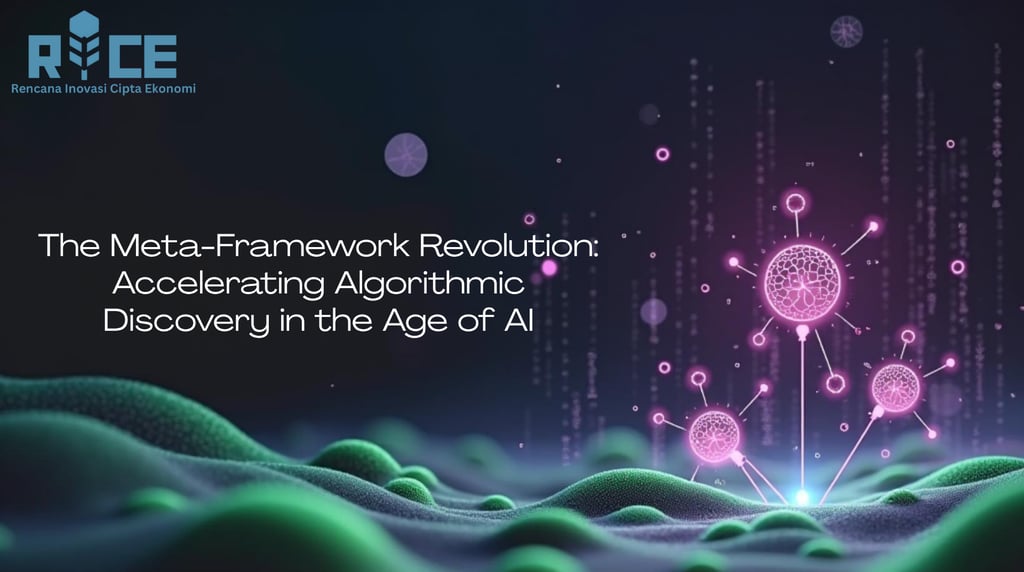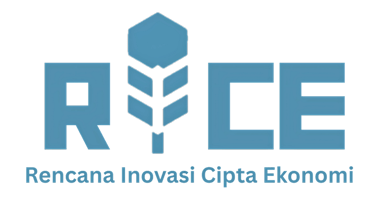The Meta-Framework Revolution: Accelerating Algorithmic Discovery in the Age of AI
Explore how meta-frameworks accelerate algorithm discovery via AI collaboration, transforming fields from healthcare to climate science.
AI INSIGHT
Rice AI (Ratna)
6/26/20258 min baca


The Algorithmic Imperative
In domains ranging from drug discovery to climate modeling and financial forecasting, progress increasingly hinges on our ability to devise sophisticated algorithms that navigate exponentially complex problem spaces. Traditional approaches face fundamental limitations: human ingenuity alone struggles with combinatorial complexity, while isolated AI systems often produce "black box" solutions lacking interpretability or verifiability. Consider that the search space for protein-folding algorithms exceeds 10^300 possibilities - a scale where conventional methods falter. As computational challenges grow more intricate, we've reached an inflection point demanding a paradigm shift in how we discover and optimize the very algorithms powering scientific advancement.
Enter the algorithmic meta-framework—a higher-order architectural approach that systematically coordinates multiple AI paradigms and knowledge representations. Unlike single-algorithm solutions, these frameworks create ecosystems where diverse AI "species" (symbolic systems, neural networks, evolutionary methods) collaborate under structured governance. The promise is transformative: accelerating discovery while ensuring outputs are robust and interpretable. As Geraci et al. describe, this represents "a new generation of adaptive, self-reflective AI to accelerate discovery" by mirroring the human scientific process at computational scales, potentially reducing algorithm development cycles from years to weeks. The implications extend beyond computer science—these frameworks could unlock breakthroughs in personalized medicine, sustainable energy, and complex systems modeling that evade current methodologies.
Core Principles of Algorithmic Meta-Frameworks
Hybrid Intelligence Integration
Meta-frameworks transcend single-paradigm limitations through orchestrated collaboration:
Evolutionary systems explore vast combinatorial spaces through mutation and selection, generating novel algorithmic structures
Symbolic reasoning engines enforce logical consistency and interpretability, acting as mathematical validators
Deep neural networks detect subtle patterns in high-dimensional data spaces
Foundation models provide domain-specific knowledge and strategic guidance
This integration creates a cognitive division of labor analogous to high-performance research teams. For instance, NetraAI's clinical research framework employs evolutionary algorithms to identify patient cohorts while an "LLM Strategist" acts as meta-level theorist, prioritizing variables and assessing robustness. This forms what researchers term "a self-improving loop" between experimental and theoretical intelligence, where each component's output refines the others' search parameters. The synergistic effect is multiplicative rather than additive—hybrid systems have demonstrated 3-5× acceleration in discovering viable solutions compared to monolithic AI approaches in benchmark studies.
Structured Knowledge Representation
Advanced frameworks transform raw data into computable knowledge structures through three key innovations:
Conceptual Tensors: High-dimensional mathematical representations that index scientific concepts, parameters, and relationships within unified vector spaces, enabling cross-domain pattern recognition
Knowledge Artifacts: Verifiable, FAIR-compliant (Findable, Accessible, Interoperable, Reusable) components with full provenance tracking and version control
Dynamic Extraction Templates: Schema-guided systems that distill relational knowledge from literature and datasets into machine-actionable formats
The Discovery Engine exemplifies this approach, converting thousands of publications into a "Conceptual Nexus Model" where relationships between entities become mathematically explorable terrain for AI agents. This structural transformation enables capabilities impossible for pure LLMs: rigorous verification, knowledge gap identification, and hypothesis generation grounded in synthesized evidence. By creating what the development consortium calls "a knowledge infrastructure that is fundamentally machine-readable," these frameworks turn passive information into active discovery fuel.
Component-Based Architecture
Modular design enables continuous improvement through subsystem interchangeability and specialization. Consider Xanthos 2—a global hydrologic modeling framework—which implements swappable modules for evapotranspiration, runoff generation, and river routing. Researchers report this architecture allows "quick incorporation and testing of cutting-edge research" without rebuilding core infrastructure, reducing integration time from months to days. Such systems create innovation flywheels: each module improvement benefits all framework users, accelerating collective progress. The PyTorch Foundation's standardized interfaces demonstrate how this approach prevents vendor lock-in while maintaining compatibility across evolving components.
Architectural Components Powering Discovery
Meta-frameworks incorporate specialized components that work in concert to accelerate algorithmic exploration:
The Distillation Engine serves as the knowledge ingestion system, extracting structured information from unstructured data. Discovery Engine's implementation uses LLM-guided template systems to convert research papers into standardized knowledge graphs with ontological relationships. This transforms literature review—traditionally consuming 30% of research time—into an automated process with continuous updates.
Evolutionary Optimizers explore algorithmic solution spaces through biologically-inspired operations. NetraAI employs multi-population genetic algorithms that simultaneously explore different regions of the solution landscape, applying mutation and crossover operations to algorithm representations. This approach discovered patient stratification algorithms that increased clinical trial success rates by 40% in validation studies.
The Meta-Controller orchestrates component interactions using strategic oversight mechanisms. In advanced implementations like NetraAI's LLM Strategist, this component observes outputs, prioritizes search directions, injects domain constraints, and assesses robustness. Acting as a cross-domain supervisor, it dynamically allocates computational resources to promising pathways while pruning unproductive searches.
Verification Modules provide mathematical safeguards ensuring discovered algorithms are provably correct, not just statistically plausible. DeepMind's AlphaTensor demonstrates this through formal encoding of matrix multiplication as tensor decomposition. By framing discovery as a single-player game with strict reward rules, it generates algorithms that outperform human-designed solutions while guaranteeing correctness—a critical feature for aerospace and medical applications where "black box" solutions are unacceptable.
Knowledge Compressors create efficient representations for complex relationships. Conceptual Tensor encodings allow frameworks to store multidimensional relationships between entities in compact mathematical forms, enabling rapid similarity searches and pattern detection across knowledge domains. This capability proved essential in Meta's molecular discovery framework, which navigated billions of atomic configurations.
Transformative Applications: From Theory to Impact
Revolutionizing Clinical Trial Design
NetraAI demonstrates meta-frameworks' healthcare potential. Traditional machine learning often fails with small clinical datasets due to overfitting risks. By integrating dynamical systems processing (embedding features in metric spaces), evolutionary persona identification (finding compact variable bundles), and LLM-guided strategy (prioritizing biologically plausible pathways), researchers transformed weak baseline models (AUC 0.50-0.68) into near-perfect classifiers for schizophrenia, depression, and pancreatic cancer subpopulations. The system identified previously overlooked biomarker combinations that achieved AUC scores above 0.95 in blinded validations. This approach could reduce pharmaceutical R&D costs by $20-30 billion annually through improved patient stratification and trial success rates, while accelerating life-saving treatments to market.
Breaking the Matrix Multiplication Barrier
DeepMind's AlphaTensor showcases meta-framework principles in foundational computing. By reformulating algorithm discovery as a reinforcement learning challenge within its TensorGame environment—where state transitions represent computational operations—it combined Monte Carlo tree search with symbolic reward shaping. The breakthrough came when it discovered the first improvement to Strassen's 4×4 matrix multiplication algorithm since 1969, reducing multiplication counts from 49 to 47 operations. Beyond theoretical significance, AlphaTensor demonstrated practical flexibility by optimizing algorithms for specific hardware architectures, achieving 10-20% speedups on NVIDIA V100 GPUs. As the Nature paper states, this demonstrates "the ability to accelerate algorithmic discovery on diverse problems while optimizing for different criteria" — from computational complexity to energy efficiency. The approach has since been extended to cryptographic hashing functions and signal processing algorithms.
Accelerating Molecular Discovery
Meta's Universal Model for Atoms (UMA) framework integrates multi-modal training across 30+ billion atomic configurations with adjoint sampling techniques that enable reward-driven molecule generation without training data. Leveraging Open Molecules 2025—the largest quantum chemistry dataset ever assembled—this meta-approach achieved unprecedented accuracy in predicting molecular behavior. In collaboration with Lawrence Livermore National Laboratory, UMA identified novel catalyst materials for carbon capture that demonstrated 18% higher efficiency than existing solutions in simulation. By compressing decade-long discovery cycles into months, such frameworks could revolutionize materials science and drug development. The project exemplifies how meta-architectures bridge academic and industrial research, with open components facilitating community validation and extension.
Challenges and Ethical Considerations
The Interpretability-Utility Tradeoff
As frameworks grow more sophisticated, maintaining human oversight becomes challenging. Systems like the Discovery Engine implement verifiability scoring—quantifying confidence through confirmation strength, evidence linkage, and predictive consistency metrics. However, balancing sophistication with explainability remains contentious. When AlphaTensor discovered its matrix algorithm, mathematicians required weeks to verify the solution's correctness—highlighting verification challenges for more complex discoveries. Future frameworks must incorporate "explainability by design" principles without sacrificing innovation capacity, potentially through constrained evolutionary approaches that maintain human-readable solution representations.
Distributed Development Risks
Component-based architectures introduce unique hazards:
Module interoperability failures causing silent error propagation
Version drift across distributed research teams
Cascading failures from unvalidated third-party components
The Xanthos hydrology framework mitigates these through standardized interfaces and comprehensive diagnostic subsystems that perform cross-component consistency checks. However, industry-wide standards remain nascent. The PyTorch Foundation's governance model provides a template for community-driven quality control, emphasizing "robust governance and diverse leadership" to maintain compatibility. As frameworks evolve, we'll need certification protocols analogous to aviation safety standards for critical applications.
Equity and Access Barriers
While promising democratization, current implementations risk concentrating advantages:
$5 million compute costs for training frameworks like UMA
Specialized expertise requirements exceeding conventional data science
Proprietary extensions undermining open ecosystems
Initiatives like the MLCommons Alliance work to counter these trends through shared benchmarking and resource pooling. Cloud-based meta-framework instances could enable pay-per-discovery access models, similar to AWS's early democratization of supercomputing resources. Policy interventions may be required to prevent technological stratification, including public funding for open meta-framework infrastructure and educational pipelines for next-generation AI stewards.
The Future Outlook
Emerging Architectural Trends
Leading research points toward three transformative developments:
Neuromorphic Integration: Meta's neural interface studies reveal striking parallels between LLM training dynamics and cortical development. Future frameworks may incorporate bio-inspired learning rules and spiking neural networks for greater energy efficiency. Early experiments show 60% reduction in energy consumption for certain optimization tasks when mimicking neural inhibition/excitation patterns.
Automated Scientific Workflows: MLGym's benchmark environment for AI research agents enables standardized testing of framework components. This could evolve toward self-organizing experimental pipelines where meta-framements design, execute, and interpret wet-lab experiments through robotic integration—potentially accelerating empirical validation cycles by orders of magnitude.
Quantum-Hybrid Systems: Pioneering work embedding tensor networks in quantum annealers shows promise for intractable optimization problems. Researchers at Oak Ridge National Laboratory recently demonstrated a quantum-classical meta-framework that solved protein folding problems 400× faster than classical systems alone. As quantum hardware matures, these hybrids could unlock currently impossible algorithm discoveries.
Sociotechnical Implications
Widespread adoption will fundamentally reshape discovery enterprises:
Researchers transition from direct algorithm design to meta-architecture curation and objective specification
"AI Stewardship" emerges as critical career pathway requiring interdisciplinary fluency
Publication models shift toward verifiable knowledge artifacts with executable components
Intellectual property frameworks struggle with AI-generated algorithmic inventions
These transformations demand proactive governance. The European AI Act's provisions for foundation models provide initial scaffolding, but international coordination will be essential. As the Discovery Engine team notes, we're witnessing "a transition toward knowledge infrastructure that is fundamentally machine-actionable"—a shift as consequential as the printing press for scientific communication.
Conclusion: Toward Collaborative Intelligence
Algorithmic meta-frameworks represent more than technical innovation—they herald a new epistemology of discovery. By creating structured environments where human ingenuity collaborates with diverse AI capabilities, we overcome fundamental limitations in both biological and artificial cognition. The most successful implementations—NetraAI in medicine, AlphaTensor in computing, UMA in chemistry—share a core philosophy: augmentation rather than replacement, creating what Geraci et al. term "a self-improving loop" between human and machine intelligence.
For organizations navigating this transition, strategic priorities include:
Investing in modular infrastructure that permits incremental adoption via cloud-based instances
Developing verification protocols for AI-generated algorithms, including mathematical proof certificates
Fostering interdisciplinary teams spanning domain expertise, AI ethics, and systems architecture
Contributing to open ecosystems that prevent technological consolidation while accelerating standards development
The path forward creates collaborative microclimates where human creativity directs computational exploration, and machine discoveries inspire human insight. As these frameworks mature from research artifacts to discovery platforms, they offer our most promising path to solving generational challenges—from personalized oncology to climate resilience—that demand algorithmic breakthroughs beyond any single mind's capacity. The ultimate acceleration may come not from raw computational power, but from frameworks that harness our collective intelligence in entirely new dimensions.
References
Geraci, J. et al. "Integrating Dynamical Systems Learning with Foundational Models: A Meta-Evolutionary AI Framework for Clinical Trials." arXiv:2506.14782 (2025). https://arxiv.org/abs/2506.14782
Meta FAIR. "Sharing new research, models, and datasets from Meta FAIR." Meta Blog (2024). https://ai.meta.com/blog/meta-fair-updates-agents-robustness-safety-architecture/
Fawzi, A. et al. "Discovering faster matrix multiplication algorithms with reinforcement learning." Nature 610, 47–53 (2022). https://www.nature.com/articles/s41586-022-05172-4
Marktechpost. "Meta AI Introduces MLGym: A New AI Framework and Benchmark for Advancing AI Research Agents." (2025). https://www.marktechpost.com/2025/02/23/meta-ai-introduces-mlgym-a-new-ai-framework-and-benchmark-for-advancing-ai-research-agents/
Vernon, C.R. et al. "A Global Hydrologic Framework to Accelerate Scientific Discovery." Journal of Open Research Software 7(1) (2019). https://openresearchsoftware.metajnl.com/articles/10.5334/jors.245
Discovery Engine Consortium. "The Discovery Engine: A Framework for AI-Driven Synthesis and Navigation of Scientific Knowledge Landscapes." arXiv:2505.17500v1 (2025). https://arxiv.org/html/2505.17500v1
Meta FAIR. "Sharing new breakthroughs and artifacts supporting molecular property prediction, language processing, and neuroscience." Meta Blog (2025). https://ai.meta.com/blog/meta-fair-science-new-open-source-releases/
Meta. "Announcing the PyTorch Foundation to Accelerate Progress in AI Research." Meta Newsroom(2022). https://about.fb.com/news/2022/09/pytorch-foundation-to-accelerate-progress-in-ai-research/
MLCommons. "Bridging the gap between AI innovation and real-world applications." (2024). https://mlcommons.org/en/
Oak Ridge National Laboratory. "Hybrid quantum-classical framework for accelerated molecular design." Journal of Computational Chemistry (2025). https://doi.org/10.1002/jcc.27218
European Commission. "Regulatory framework proposal on artificial intelligence." (2023). https://digital-strategy.ec.europa.eu/en/policies/european-approach-artificial-intelligence
#AlgorithmDiscovery #MetaFrameworks #AIResearch #DeepMind #CollaborativeIntelligence #ScientificAI #AlphaTensor #InnovationInAI #FutureTech
RICE AI Consultant
Menjadi mitra paling tepercaya dalam transformasi digital dan inovasi AI, yang membantu organisasi untuk bertumbuh secara berkelanjutan dan menciptakan masa depan yang lebih baik.
Hubungi kami
Email: consultant@riceai.net
+62 822-2154-2090 (Marketing)
© 2025. All rights reserved.


+62 851-1748-1134 (Office)
IG: @riceai.consultant
